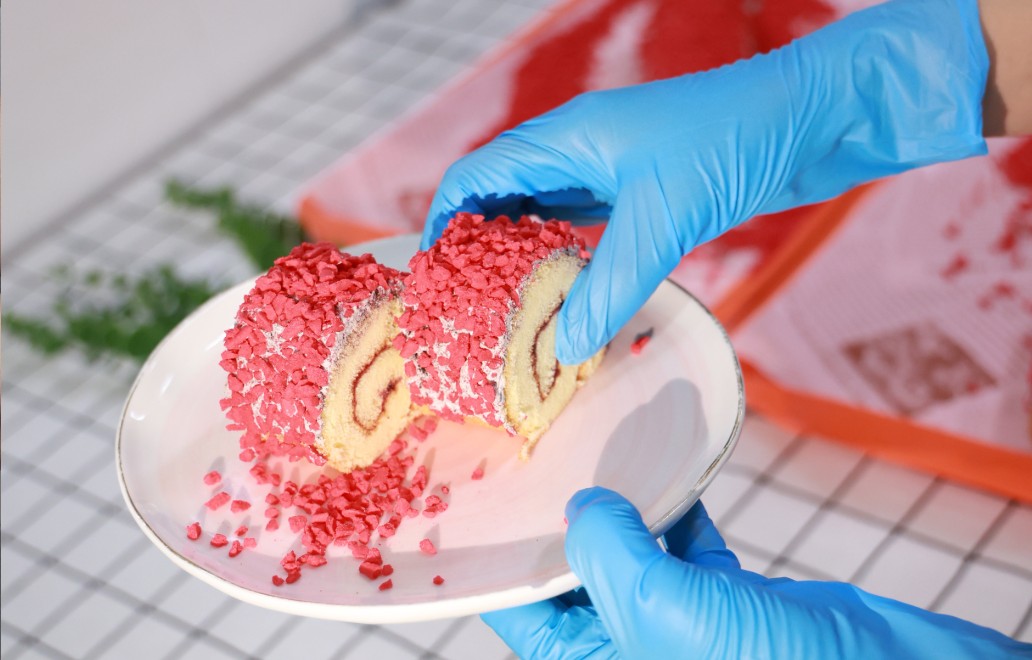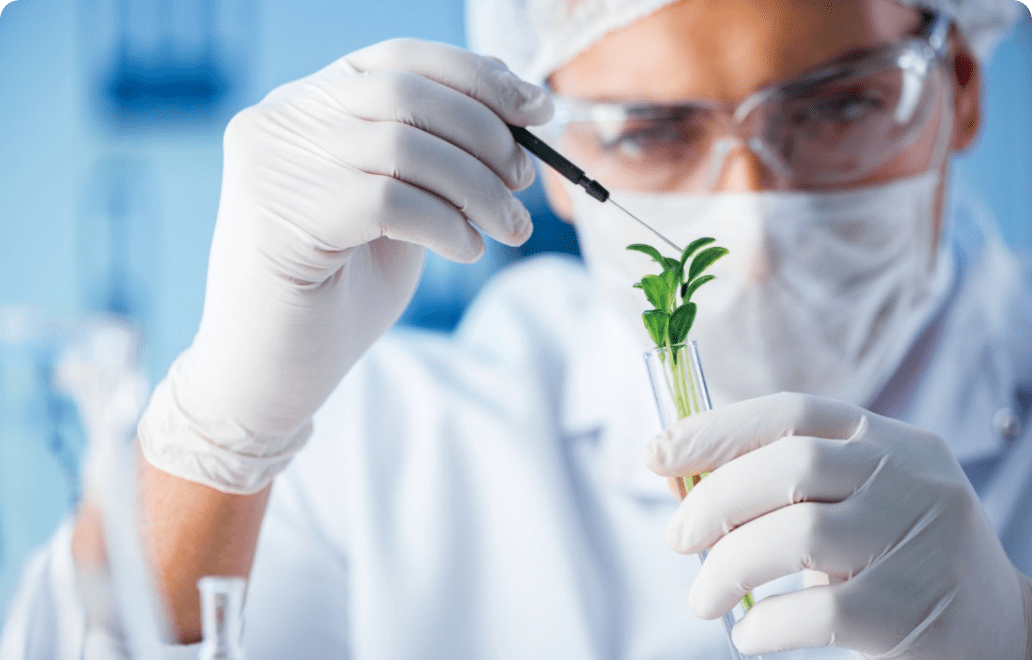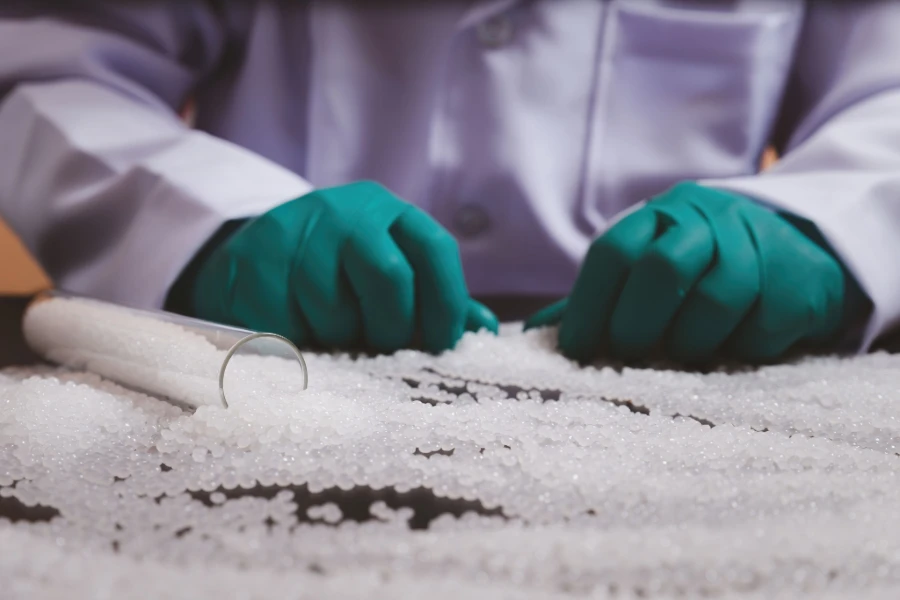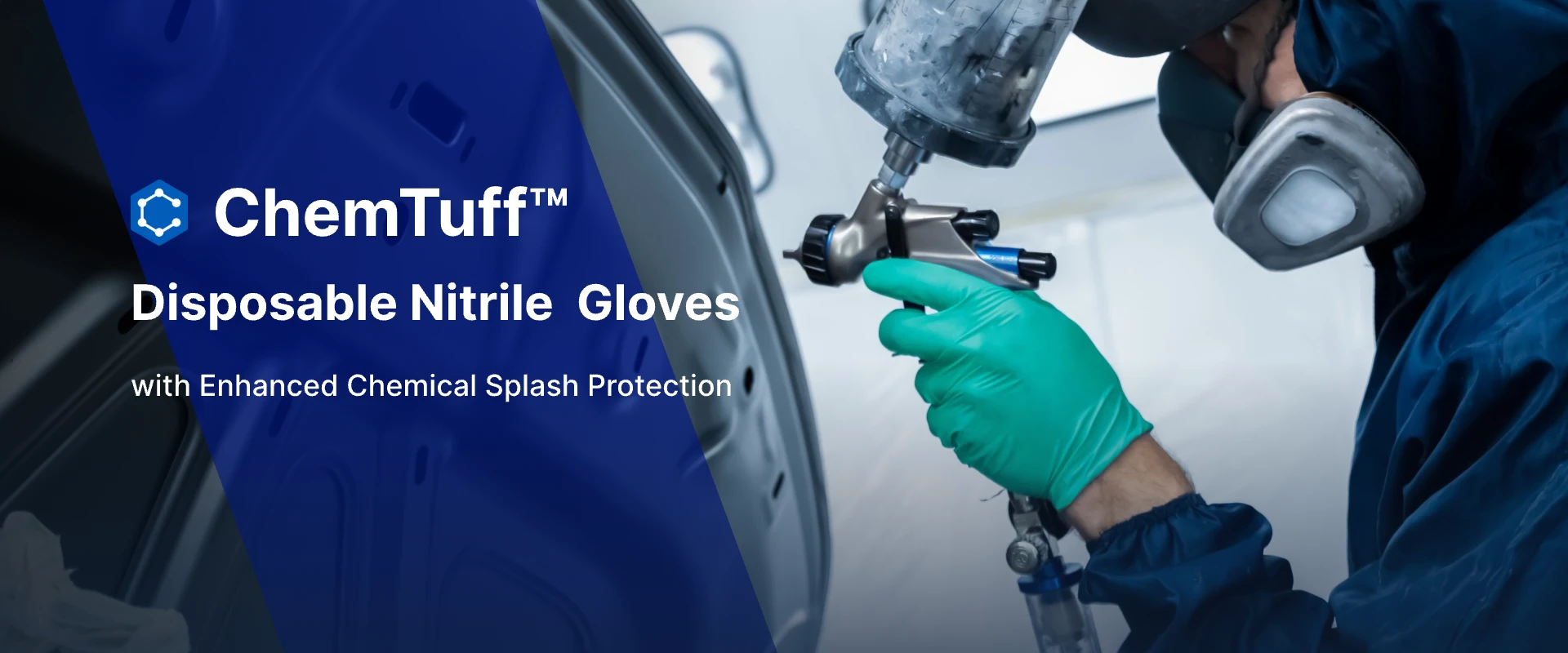Glove products
Understanding Chemical Resistance: Are Nitrile Gloves Truly Chemical Resistant?
When handling industrial solvents, laboratory reagents, or cleaning chemicals, workers inevitably ask: Are nitrile gloves chemically resistant? This question represents a critical safety consideration across healthcare, manufacturing, and research sectors. Unlike latex gloves, which derive from natural rubber, nitrile gloves are synthetic marvels engineered specifically for chemical challenges. As a latex-free disposable gloves manufacturer, INTCO Medical emphasises that while standard nitrile gloves offer basic protection, their advanced formulations like ChemTuff™ redefine chemical resistance benchmarks.
The Science Behind Nitrile’s Chemical Resistance
Nitrile gloves originate from acrylonitrile and butadiene copolymers, creating a densely structured polymer matrix that resists chemical penetration. The higher the acrylonitrile content, the greater the chemical resistance—particularly against oils, fuels, and solvents. According to ASTM D6319 standards, nitrile demonstrates significantly higher chemical resilience than latex or vinyl gloves. This synthetic composition also answers yes to nitrile gloves, latex latex-free, eliminating protein-related allergy risks while enhancing material durability.
Nitrile vs. Latex: Chemical Protection Compared
The nitrile vs latex debate centres on synthetic reliability versus natural flexibility. While latex offers superior elasticity, it degrades rapidly when exposed to petroleum-based products and oxidising chemicals. Nitrile, however, maintains barrier integrity against:
• Aromatic and aliphatic hydrocarbons
• Alcohols and biological fluids
• Weak acids and bases
• Plant and animal oils
The FDA’s 21 CFR 177.2600 approval for food contact underscores nitrile’s safety for food processing environments where chemical and biological risks coexist.
Limitations of Standard Nitrile Gloves
Not all chemicals interact equally with nitrile. According to CDC guidelines, standard nitrile gloves provide insufficient protection against:
• Strong oxidising acids (e.g., nitric, sulfuric)
• Ketones (e.g., acetone)
• Certain ethers and esters
• Highly corrosive substances
This variability necessitates manufacturer-provided chemical compatibility charts for specific chemical interactions.
INTCO Medical ChemTuff™: Engineered for Chemical Excellence
Addressing these limitations, INTCO Medical developed ChemTuff™ Disposable Nitrile Gloves with enhanced chemical barrier technology. These gloves outperform standard nitrile with:
Superior Chemical Splash Protection
Utilising patented chemical-splash prevention technology, ChemTuff™ resists permeation from five test chemicals exceeding Type B requirements under EN ISO 374. This makes them ideal for laboratory analysis, chemical handling, and pharmaceutical production.
Exceptional Durability
Certified to EN 388 with Level 2 abrasion resistance, ChemTuff™ demonstrates 45% greater strength than conventional nitrile gloves. The 60% smoother surface accelerates donning while maintaining tactile sensitivity.
Silicon-Free Safety
The silicone-free formulation prevents contamination in electronics manufacturing, paint applications, and cleanroom environments where silicone transfer causes product defects.
Enhanced Comfort
Advanced formulation ensures comfortable extended wear without fatigue, supporting productivity during long procedures or shifts.
Choosing Chemical-Resistant Gloves: Practical Guidelines
Selecting appropriate gloves requires:
1、 Identifying Chemicals: Determine exact chemicals, concentrations, and exposure types (splash vs. immersion)
2、 Reviewing Compatibility Charts: Consult manufacturer charts like those provided for ChemTuff™ gloves
3、 Considering Exposure Duration: Longer exposure requires higher resistance
4、 Verifying Certifications: Look for EN ISO 374 ratings and FDA compliance
5、 Evaluating Additional Needs: Consider puncture resistance, grip, and sizing
Industry Applications of Chemical-Resistant Nitrile Gloves
Healthcare and Laboratory
Protection against disinfectants, laboratory reagents, and cytotoxic drugs during preparation and administration.
Food Processing
Resistance to cleaning chemicals, sanitisers, and oils while preventing food contamination.
Automotive and Industrial
Protection from fuels, lubricants, solvents, and acids during maintenance and manufacturing.
Cleaning and Sanitation
Barrier protection against aggressive cleaning agents and disinfectants.
The Manufacturer Redefining Chemical Protection
As the world’s largest latex-free disposable nitrile gloves manufacturer, INTCO Medical combines innovative technology with rigorous quality control. The company’s ChemTuff™ line represents its commitment to advanced protective solutions that address real-world chemical challenges while maintaining comfort and dexterity.
With manufacturing facilities certified to ISO 13485 and products meeting international standards, INTCO Medical serves global clients across healthcare, industry, and research sectors. Their technical support team assists organisations in selecting appropriate gloves for specific chemical environments.
Explore Advanced Chemical Protection
Discover INTCO Medical’s ChemTuff™ Disposable Nitrile Gloves for superior chemical resistance:




























